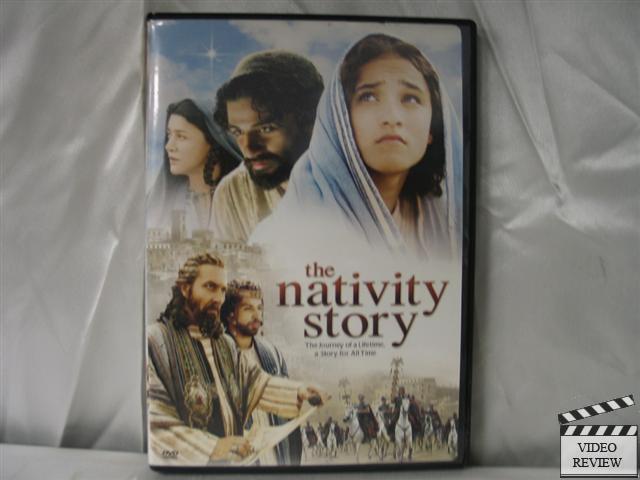
The Native Story – Roman soldiers on horses tear into the sleepy town of Bethlehem. They smash down doors, grab any child under two and execute them without mercy. The parents are left crying into the darkness as their children lie motionless in the street. And so starts The Nativity Story, a film that wilfully tries to wrestle peoples’ perceptions away from the white-washed kid-friendly treatment of Jesus’ birth, to a more realistic take on the event.

The Nativity Story
In Nazareth, a very ordinary Jewish teenager, Mary (Keisha Castle-Hughes), who is betrothed to marry Joseph (Oscar Isaac), is told by the Angel Gabriel (Alexander Siddig) that she has been chosen to carry God’s son, the Messiah. Upon finding out Mary is pregnant, Joseph, being a good man, decides to not bring charges against her that could lead to her death by stoning. He’s later visited by Gabriel in a dream telling him the truth of Mary’s pregnancy. After Joseph decides to stay with Mary, a census requires him to travel to Bethlehem. Joseph and Mary embark on the hazardous journey together.
The Small Fictional Moments Work Best
Taking up the challenge to make the nativity feel fresh is Catherine Hardwicke. The former production designer turned director likes to tell stories about teenagers. Her first film, Thirteen, was a very dark vision of adolescence. After The Nativity Story, Hardwicke would go on to direct the massively popular teen vampire film Twilight. Hardwicke excels in the turmoils of youth, and what could be more challenging for a young woman than the responsibility to carry God’s child? Some of the best moments in The Nativity Story are the small personal ones, like when Mary fears what people will do to her when they find out she’s pregnant; or when Joseph ponders if he’ll have anything to teach Jesus as he grows up. Ironically the scenes that work well are the ones not drawn from the Bible but imagination — hypothesising what it would be like to live through that story. Unfortunately too much of the time the film appears to be joining the dots between the two nativity accounts from Matthew and Luke.
A Lack of Excitement and Character
The period detail of first century Palestine and sense of the time and place is impressive, yet events play out with little invention or excitement. The filmmakers seem to acknowledge this by every so often putting in a moment of action, such as Mary almost drowning while crossing a river, just to keep the audience awake. These moments are terrible, offering nothing in the way of insight into the characters. The supporting cast are uniformly two dimensional. King Herod (Ciarán Hinds) is no more than a pantomime villain with family issues. His scenes are a waste of time, taking precious minutes away from Joseph and Mary’s concerns. Also misused are the three wise men, who act cringingly as comedy relief. It is worth noting, however, that the film’s exploration of Joseph, so often overlooked, is unexpected, and Isaac plays him well with a sense of awe and determination that helps to humanise the story.
Walking The Tightrope
The Nativity Story had a fine line to walk between getting back to the roots of the story, while not alienating those who simply want to see the traditional version. Thus, we have the three wise men’s visit and Herod’s massacre of the innocents compressed for dramatic purposes to take place right after Jesus’ birth, when it’s clear in the Bible these events would have taken place months later. Even worse, the film is spoken in the English language, which considering the success of The Passion of the Christ and the increasing acceptance of subtitles, makes The Nativity Story feel inauthentic. This might have been a concession to children, but given that the film’s trying to highlight facts about the nativity, surely one of them must be that Mary and Joseph were Jewish and would have spoken Aramaic.
The film had a difficult task and therefore it’s unsurprising that it fails. The Bible story is a weird dark subversive tale that gives little more than an overview of these strange events. It’s commendable that some of the darkness is included in the film, however it lacks magic, power and relevance. This is, after all, the birth of the most influential human being who’s ever lived. He surely deserves better.

